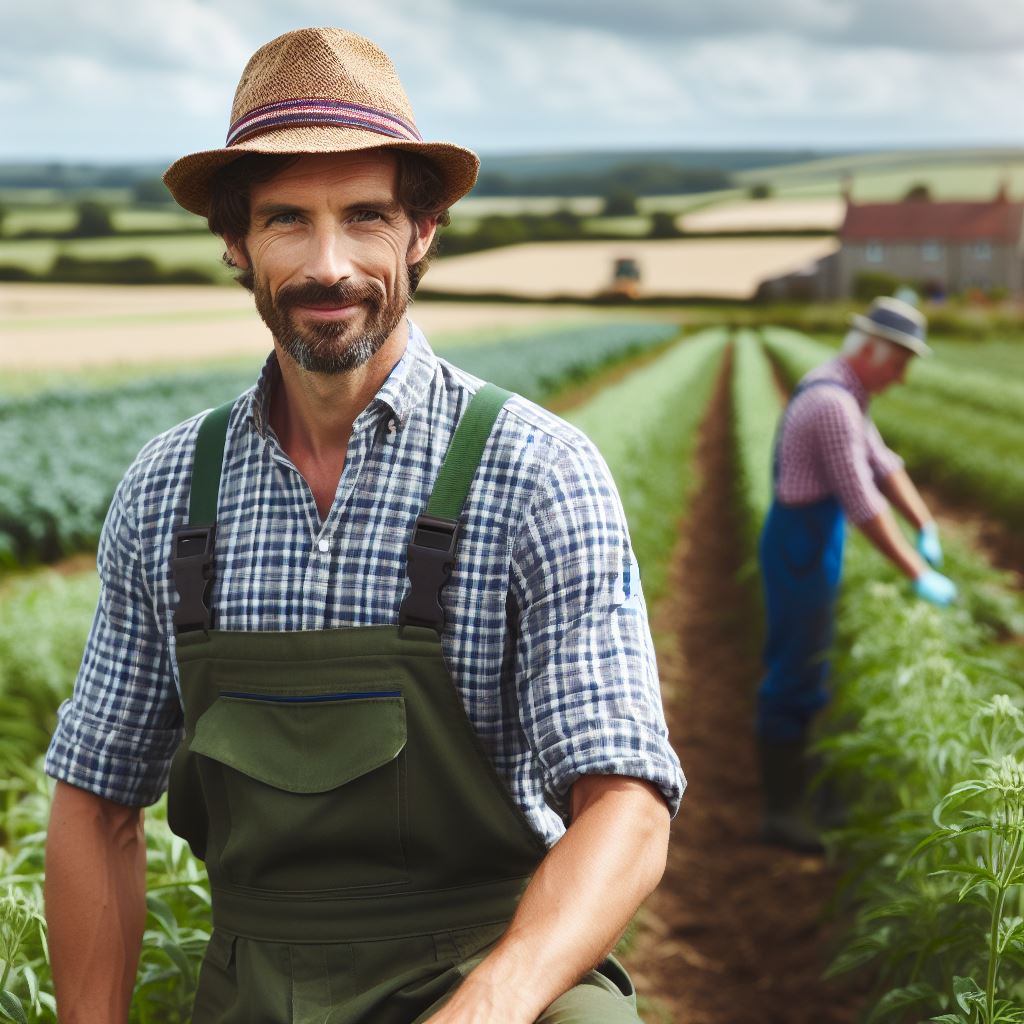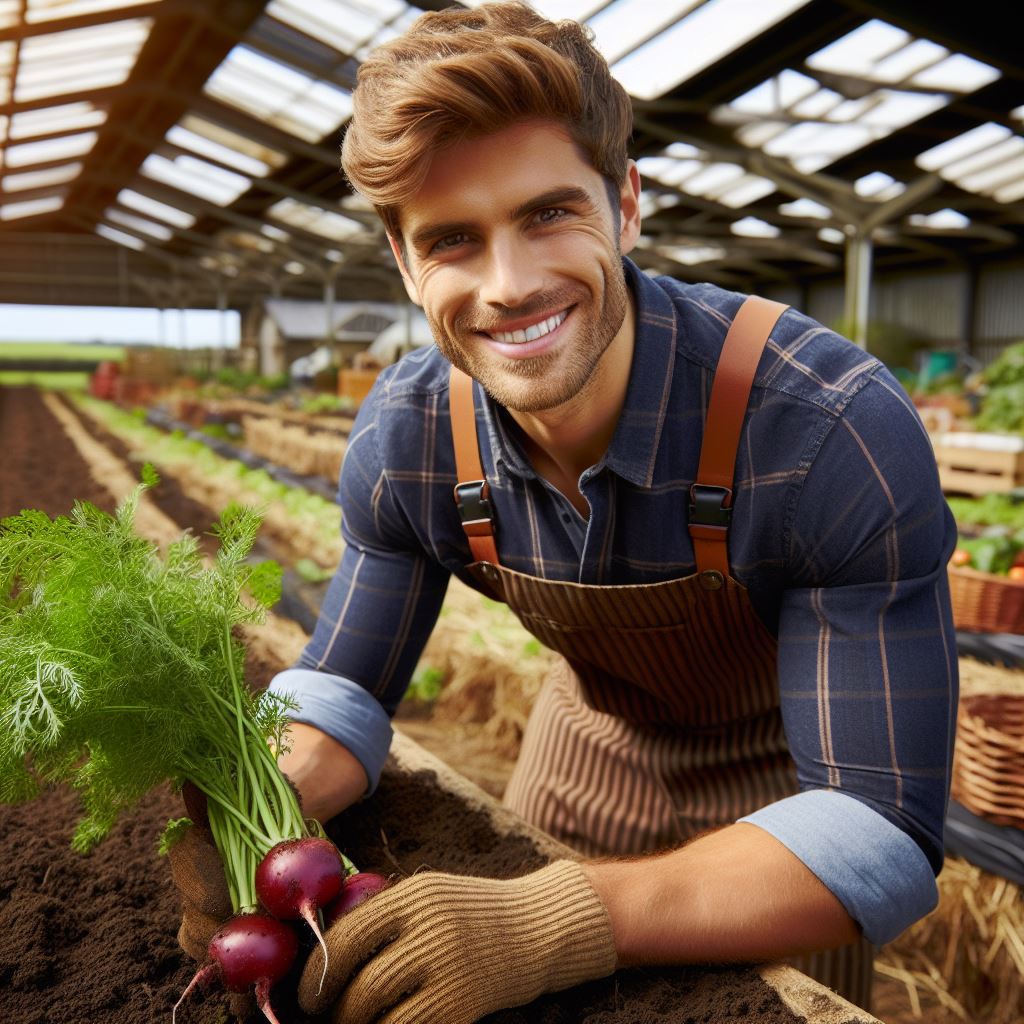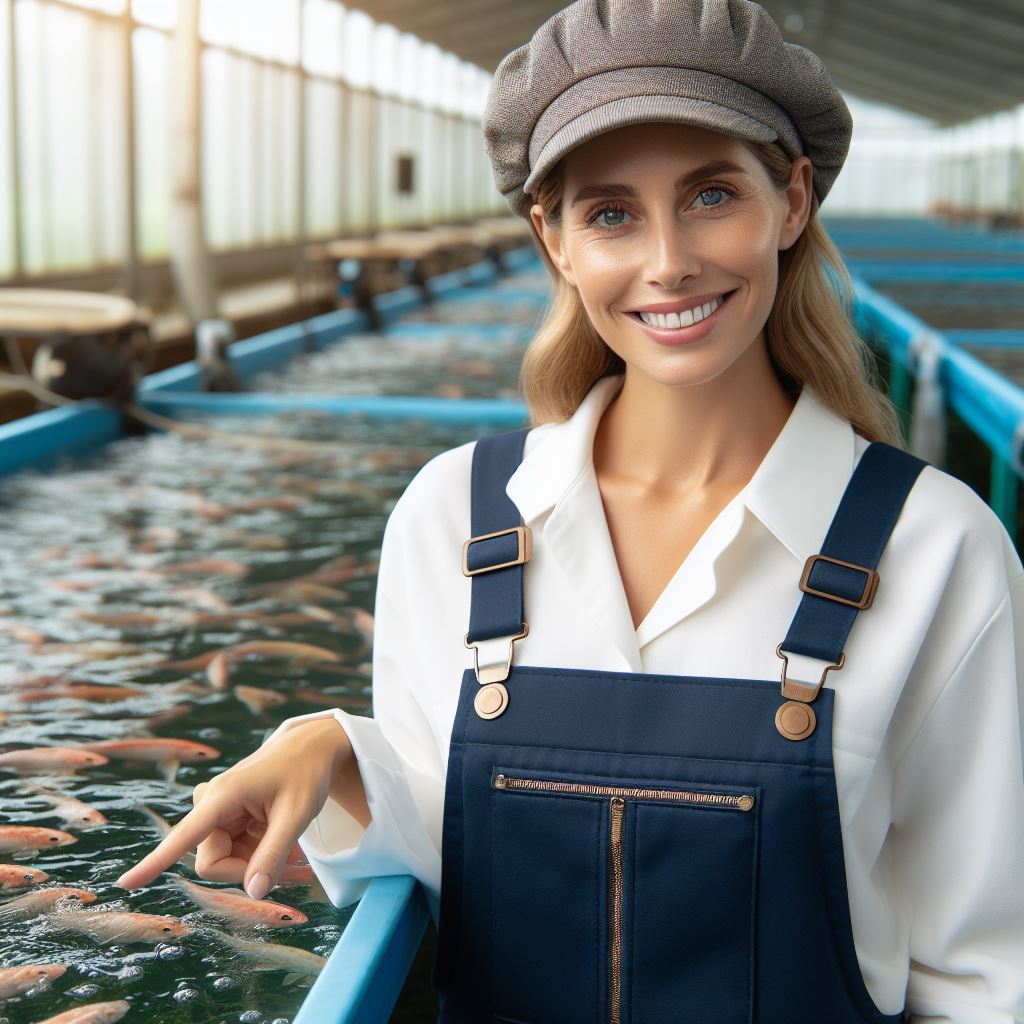Introduction
- Brexit is the withdrawal of the United Kingdom from the European Union, and it has had a significant impact on UK farming.
- Farming plays a crucial role in the UK’s economy, providing jobs and producing food for the population.
- The main objective of this blog post is to explore the changes and effects of Brexit on UK farming.
Brexit, or the withdrawal of the United Kingdom from the European Union, has had a profound impact on UK farming.
The farming industry in the UK is of utmost importance, as it not only provides jobs for many people but also contributes to the production of food for the population.
The objective of this blog post is to delve into the various changes and effects that Brexit has had on UK farming.
The decision to leave the EU has brought about significant shifts in policies and regulations, which have directly influenced the agricultural sector.
One of the major concerns is the loss of subsidies that farmers in the UK previously received from the EU.
These subsidies played a crucial role in supporting farmers and maintaining the viability of their businesses. With Brexit, farmers face uncertainty regarding future financial support.
The UK’s exit from the EU also means that new trade agreements need to be negotiated.
This poses both opportunities and challenges for UK farmers. On one hand, they have the potential to expand into new markets.
On the other hand, they may face increased competition from imported agricultural products.
The change in immigration policies is another significant factor affecting UK farming.
Many farmers heavily rely on migrant workers, especially during the peak growing and harvesting seasons.
Restrictions on the movement of labor may lead to a shortage of agricultural workers, impacting the sector’s productivity.
In essence, Brexit has undoubtedly brought about numerous changes and effects on UK farming.
The loss of subsidies, the need for new trade agreements, and potential labor shortages all pose challenges for the sector.
It is crucial for the government and stakeholders to work together to mitigate the negative impacts and ensure the long-term sustainability of UK farming.
Pre-Brexit Agricultural Policies and Regulations
Common Agricultural Policy (CAP) and its role in UK farming
- The Common Agricultural Policy (CAP) was a key component of the European Union’s agricultural policies.
- It aimed to provide stability, support, and income for farmers across EU member states.
- In the UK, CAP played a crucial role in shaping the farming sector for decades.
- It provided subsidies, price controls, and access to the EU market, benefitting UK farmers.
- CAP promoted sustainable farming practices, environmental protection, and rural development.
EU subsidies and support for UK farmers
- UK farmers received significant financial support through EU subsidies under the CAP.
- These subsidies helped stabilize incomes, particularly in times of market volatility.
- Payments were linked to the size of agricultural land and specific production practices.
- EU support also funded rural development projects, infrastructure improvements, and research.
- The subsidies played a crucial role in sustaining many UK farms.
Benefits and drawbacks of the EU membership for UK farmers
- EU membership provided UK farmers with access to a large, single market without trade barriers.
- It facilitated export opportunities and ensured a stable demand for agricultural products.
- Common quality and safety standards guaranteed consumer confidence and international competitiveness.
- Membership encouraged technological advancements and knowledge sharing within the farming community.
- Some farmers felt burdened by bureaucracy, excessive regulations, and limited policy control.
- There were concerns about the impact of EU regulations on innovation and flexibility in farming practices.
- Market dependencies and price fluctuations affected profitability, requiring ongoing financial support.
Overall, the Common Agricultural Policy and EU membership provided significant support and stability for UK farmers.
The subsidies helped sustain agricultural incomes and secure the development of rural communities.
Access to a single market facilitated trade and export opportunities, ensuring a stable demand for UK agricultural products.
However, some farmers found EU regulations burdensome and felt limited in their policy influence.
The impact of regulatory constraints on innovation and flexibility in farming practices was also a concern.
As the agricultural sector adjusts to the challenges and changes brought about by Brexit, it remains to be seen how the future policies and regulations will shape UK farming.
Changes in Trade and Market Access
Impact of Brexit on export/import of agricultural products
- Brexit has potential consequences on the export and import of agricultural products.
- The United Kingdom’s departure from the European Union may lead to changes in trade agreements.
- Export of UK farming goods to the EU might face new regulatory barriers and increased bureaucracy.
- Importing agricultural products from the EU might become more challenging due to new trade rules.
- The UK government needs to negotiate new trade deals to ensure uninterrupted export and import of agricultural goods.
- Uncertainty surrounding future trade relations may affect the competitiveness of UK farmers in international markets.
- Brexit could disrupt established supply chains, impacting both the quantity and quality of imported agricultural products.
Tariffs and non-tariff barriers after Brexit
- Leaving the EU means the UK may lose the benefits of tariff-free trade with EU member countries.
- The introduction of tariffs on agricultural products could increase the cost of imports for UK farmers.
- Tariffs imposed by the UK on EU agricultural products would impact prices and consumer choices.
- Non-tariff barriers, such as regulatory differences, may increase the administrative burden for farmers and traders.
- Compliance with differing food standards and certification requirements may be necessary, further affecting trade.
Potential effect on prices and profitability of UK farming
- Brexit-induced changes in trade and market access could have significant implications for UK farming economics.
- Increased tariffs and trade barriers may reduce the competitiveness of UK agricultural products in the global market.
- Higher import costs due to tariffs and non-tariff barriers might lead to increased prices for consumers.
- Reduced access to EU markets can impact the profitability of UK farmers heavily reliant on exports.
- Lower profitability may result in increased financial strain on UK farmers and potential job losses.
- The UK government needs to prioritize trade agreements to mitigate the negative impact on prices and profitability.
- The long-term effects of Brexit on the overall financial sustainability of UK farming are yet to be fully understood.
Therefore, Brexit has brought about significant changes in the trade and market access for the UK farming industry.
The impact on export and import of agricultural products, including the potential introduction of tariffs and non-tariff barriers, can have repercussions on prices and profitability.
The UK government must actively negotiate favorable trade agreements to minimize disruption and ensure the long-term sustainability of the farming sector.
The full extent of these changes and their effects on UK farming will only become evident in the coming years.
Read: UK Aquaculture Technician: Career FAQs
Potential Changes in Farming Practices and Labor
Effect of Brexit on the availability of seasonal migrant workers
Brexit has significantly impacted the availability of seasonal migrant workers in the UK farming industry.
The free movement of labor within the EU allowed the sector to rely on migrant workers to meet their labor demands.
However, with the implementation of Brexit, the UK’s access to this pool of seasonal workers has drastically changed.
This change has posed serious challenges as the farming industry heavily depended on migrant workers, particularly during peak harvesting seasons.
Farmers are now facing a shortage of labor, which has raised concerns regarding the future of UK agriculture.
Implications for agricultural workforce and labor shortages
The scarcity of seasonal migrant workers due to Brexit has caused labor shortages in the agricultural sector.
Many farmers have struggled to find enough workers to carry out essential farming activities, such as harvesting crops.
As a result, the productivity and efficiency of farms have been affected, leading to potential economic losses.
The labor shortage has led to increased competition for available workers, resulting in rising wages.
These higher labor costs can further strain the already struggling farming industry, particularly for smaller farms with limited financial resources.
Shift towards automation and innovation in farming practices
To cope with the labor shortages caused by Brexit, the UK farming industry is experiencing a significant shift towards automation and innovation.
Farmers are increasingly investing in technology and machinery to streamline their operations and reduce their reliance on human labor.
Smart farming techniques, such as precision agriculture and robotic systems, are gaining traction.
These technologies enable farmers to automate tasks like planting, irrigating, and harvesting crops, improving efficiency and reducing the need for manual labor.
Innovation in crop genetics and breeding is being explored to develop crops that require less manual maintenance.
Adopting these automated and innovative farming practices can bring numerous benefits.
It can help address the labor shortage by reducing the dependence on human workers.
Personalized UK Career Consulting
Receive tailored career guidance designed just for you. Get actionable steps and expert support to boost your career in 1-3 days. Take control of your career now.
Get StartedRobotic systems can perform tasks 24/7 with precision and speed, minimizing the need for seasonal labor.
Automation can increase productivity and reduce costs in the long run.
While the initial investment in technology may be significant, the savings from reduced labor expenses and improved efficiency can outweigh the costs.
Lastly, automation can improve the overall sustainability of the farming industry.
Automated systems can accurately apply fertilizers and pesticides, reducing their excess use and minimizing environmental impact.
However, the shift towards automation also has its challenges.
The initial implementation cost of machinery and technology can be a barrier for small-scale farmers.
Some farming techniques may require specialized skills and knowledge, necessitating training programs for farmers to adapt to the changes.
Additionally, there may be concerns surrounding job losses in the agricultural workforce due to automation.
Brexit has brought about significant changes in farming practices and labor in the UK.
The reduced availability of seasonal migrant workers has caused labor shortages in the agricultural sector.
To address this issue, the industry is embracing automation and innovation.
While automation offers various benefits, challenges such as initial costs and training requirements need to be managed appropriately.
These changes signify a transformative period for UK farming, where technology will play a crucial role in sustaining the industry’s productivity and development.
Read: Aquaculture Equipment Essentials in the UK

Uncover the Details: Key Arboriculture Trends in the UK 2024
You Might Also Like: Livestock Farming in the UK: Ethics and Practices
Environmental Policies and Sustainability
EU regulations on environmental standards and protections
The European Union (EU) has implemented stringent regulations to ensure environmental standards and protections within its member states
These regulations cover various aspects, including water quality, air pollution, soil management, and biodiversity conservation.
EU’s Common Agricultural Policy (CAP) promotes sustainable agriculture practices and provides financial support to farmers who comply with environmental regulations.
UK’s commitment to maintaining environmental sustainability
The UK has also demonstrated a commitment to maintaining environmental sustainability even after leaving the EU.
The government has set ambitious targets to reach net-zero carbon emissions by 2050 and has introduced various policies to support renewable energy and reduce greenhouse gas emissions.
The UK has designated protected areas such as national parks and areas of outstanding natural beauty, highlighting its commitment to preserve its natural environment.
Potential changes in farming practices to align with UK’s priorities
Brexit offers an opportunity for the UK to reassess its farming practices and realign them with its environmental priorities.
Farmers may be required to adopt sustainable techniques such as organic farming, agroforestry, and precision agriculture to reduce their impact on the environment.
There could be increased emphasis on water and soil management to ensure long-term sustainability and to protect biodiversity.
Your Dream Job Starts with a Perfect CV
Get a tailored CV and cover letter that captures your unique strengths and stands out in your industry. Let us help you make an unforgettable first impression.
Get StartedFarm subsidies may also be redirected towards rewarding farmers who adopt practices that promote environmental sustainability, such as afforestation and habitat preservation.
Both the EU and the UK have placed significant importance on environmental policies and sustainability in the context of farming.
While EU regulations have provided a solid foundation for environmental protection, Brexit allows the UK to tailor its policies to align with its specific priorities.
By embracing sustainable farming practices and implementing stricter environmental regulations, the UK can ensure the long-term viability of its agricultural sector while preserving its natural resources.
Read: Aquatic Health Management by UK Experts
Uncover the Details: Deep-Sea Tales: Interviews with UK Fishermen
Delve into the Subject: A Day in the Life of a UK Fisherman: True Stories
You Might Also Like: Organic Farming in the UK: Methods & Benefits
Support and Subsidies for UK Farmers
Brexit’s impact on subsidies previously provided by the EU
- The UK farming sector will no longer receive subsidies from the EU after Brexit.
- This will lead to significant financial challenges for farmers who heavily relied on these subsidies.
- Many farmers fear a decline in income and the inability to compete with heavily subsidized EU counterparts.
- Without EU subsidies, UK farmers may struggle to invest in new technology and infrastructure.
- The loss of EU subsidies could also affect the affordability of food for consumers.
Proposed new subsidy schemes and government support
- The UK government has pledged to introduce new subsidy schemes to support farmers post-Brexit.
- These schemes aim to ensure a smooth transition and maintain the profitability of the farming sector.
- The government plans to redirect funds previously allocated to EU subsidies towards domestic support.
- There will be a shift towards a results-based system, incentivizing environmentally friendly practices and sustainable farming.
- New subsidies will be more targeted and focused on supporting small and medium-sized farms.
Ensuring resilience and future profitability of UK farming sector
- UK farmers need to adapt and innovate to overcome the challenges posed by Brexit.
- Investment in research and development will be crucial to improve productivity and sustainability.
- Farmers should explore diversification opportunities to reduce reliance on specific sectors.
- Collaboration with other sectors such as tourism or renewable energy can provide additional income streams.
- The government and industry associations must work together to provide support, guidance, and training to farmers.
- Trade agreements with other countries will be essential to open up new markets for UK agricultural products.
- Efforts should be made to maintain high food standards and uphold the reputation of UK produce globally.
- Agricultural education and vocational training programs should be enhanced to attract and retain young farmers.
- Investment in rural infrastructure, such as broadband connectivity and improved transportation, is crucial to support the sector.
- Monitoring and evaluation systems should be put in place to assess the effectiveness of new subsidy schemes.
Despite the challenges, Brexit also presents opportunities for UK farmers to reshape the sector and have more control over agricultural policies.
With the right support, subsidies, and a focus on sustainable practices, UK farming can continue to thrive and adapt to the changing landscape post-Brexit.
Read: Aquaculture Law: UK Regulations Explained
Uncover the Details: Sustainable Farming Practices in the UK Explored
Conclusion
Summary of the main effects and changes caused by Brexit in UK farming
Brexit has had significant effects and changes on UK farming. The withdrawal from the European Union has led to the loss of access to the EU single market and common agricultural policies.
British farmers now face new trade barriers and increased competition from international markets.
The end of free movement of labor has raised concerns about the availability of agricultural workers.
Importance of adapting, innovating, and seizing new opportunities
In order to navigate the challenges brought by Brexit, UK farmers must adapt and innovate their farming practices.
This includes exploring new markets, investing in technology and sustainable methods, and diversifying their product offerings.
By seizing new opportunities and embracing change, farmers can mitigate the negative impacts of Brexit and ensure their long-term viability.
Final thoughts on the future of UK farming post-Brexit
The future of UK farming post-Brexit is uncertain but holds potential for growth and transformation.
While there are challenges, such as increased competition and changing regulations, there are also opportunities for British farmers to redefine and improve their industry.
The government’s support and investment in agriculture, coupled with the resilience and adaptability of UK farmers, will be crucial in shaping a successful future for the sector.
Optimize Your LinkedIn for Success
Boost your LinkedIn profile with a professional bio, keyword-rich headline, and strategic recommendations that attract recruiters. Stand out from the crowd and get noticed.
Optimize Now[E-Book for Sale]
500 Cutting-Edge Tech Startup Ideas for 2024 & 2025: Innovate, Create, Dominate
$19.99 • 500 Tech Startup Ideas • 62 pages
You will get inspired with 500 innovative tech startup ideas for 2024 and 2025, complete with concise descriptions to help you kickstart your entrepreneurial journey in AI, Blockchain, IoT, Fintech, and AR/VR.




